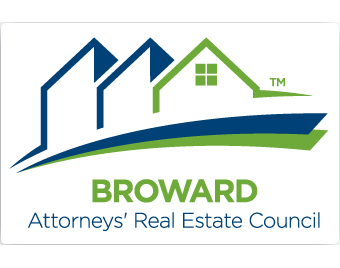FAQs
My mom has a simple estate, does she need legal advice?
I often give warning to those who have what they think is a “simple” estate plan. These are people that have joint ownership and beneficiary assets (life insurance, IRAs, annuities, POD and TOD accounts) to avoid probate. I’ve found that depending on the facts and circumstances, their “simple” estate plan may land their beneficiaries in court and end up costing them thousands of dollars to unravel.
Do Single People need an estate plan?
I was recently asked why it’s so important for single people to have an estate plan. The legal definition of single not only includes someone who is truly single but also someone who is in a committed relationship but isn’t legally married to their partner. This broad range of family and financial situations to plan around can make estate planning for singles much more complicated than planning for married couples.
When should I make an appointment to see an estate planning attorney?
Even If you already have an estate plan, it’s very likely that your wishes have changed, the advantages you sought have eroded or vanished, or even that new opportunities now exist that could offer a better value for your estate. A periodic review can give you peace of mind. I recommend a review of the estate plan if any of the following has occurred:
- Large estates (over the applicable exclusion amount) – every year
- Small estates (under the applicable exclusion amount) – every five years
- Changes in estate valuation
- Economic changes
- Changes in occupation or employment
- Changes in family situations
- Changes in your closely held business interest
- Changes in the estate plan
- After major transactions
- Changes in insurance coverage
- Death of trustee/executor/guardian
Other important changes, such as a change in feelings about charity, change in a spouse’s health or your children are through college now to be certain that your estate plan remains applicable to your needs.
What documents do I need to bring to the first appointment?
It is always helpful to bring a list of all of your assets, including account numbers and approximate values, the most recent statement for your accounts and a copy of real property deeds, with you to your initial meeting in order to determine what type of estate plan will best suit your needs. Please do not forget to include all annuities, life insurance and retirement benefits, including IRA’s, 401k’s and all defined benefit and defined contribution plans. You should also be aware of any existing joint tenancy accounts and/or pay-on-death designations you have made with regard to your assets, as these may need to be changed after discussing your options with your estate planning attorney.
Where should I keep my documents?
Many folks that have attended my seminars have heard me discuss your “very important folder” where you will keep your very important papers and let the very important people in your life know where it is kept. I discuss this very important folder because it is critical to assemble a paper train and ensure that your heirs can follow it. Items to keep in your very important folder should include, but are not limited to:
- Wills
- Trusts
- Healthcare Proxies
- Living Wills
- Powers of Attorney
- Deeds
- Life Insurance policies
- List of bank accounts
- 401K / Pension accounts
- List of credit cards
- Mortgage notes
Any other important document should be included in the very important documents folder. I recommend that it be a small fire-proof metal case. I also often suggest drawing up a balance sheet that lists the basic information about your assets. It may be a good idea to include a final letter of intent. It has no legal standing, but it can help guide your heirs with what you want done. Clients kind of chuckle and say, “It doesn’t matter to me, I’m dead,” but from the kids’ perspective they want one last chance to respect and honor you.
What documents make up my estate plan?
When I teach my seminars, I refer to the “HELP” documents to describe the traditional estate plan. Please keep in mind that every plan is unique and may require additional documents for a complete plan, but these are the customized documents that I prepare for my clients:
- Health Care Proxy appoints an agent to make health care decisions for the principal, but only if the principal is unable to make those decisions for himself.
- Estate Will allows you to avoid intestacy – have your estate distributed as you want, not how the state directs, avoid or reduce estate taxes, reduce the cost and delay of estate administration, appoint the person of your choice to administer your estate and do so without posting a bond, appoint a guardian and provide for minor children, provide for children of a first marriage or children born after the execution of a will or trust, provide for a disabled child, grandchild or other beneficiary who is receiving government benefits, make charitable bequests and set up a trust to control the distribution of your assets if necessary.
- Living Will is the document stating your wishes regarding the administration or withholding of medical treatment. It can be thought of as instructions to both the Health Care Agent and to medical providers.
- Power of Attorney is used for property management, financial and legal matters. Although it can be drafted to provide limited powers, the more comprehensive the power, the more useful it tends to be.
Why do I need a lawyer to buy or sell my house?
From contract preparation, negotiation and review to title examinations, due diligence and the preparation of closing documents, real estate attorneys prevent problems before they occur. As the recent past has shown, a bad real estate deal can have grave and disastrous consequences for the parties involved in the transaction and for the national and local economy as a whole. Real estate attorneys insure that the real estate transaction is successful and profitable and doesn’t produce costly problems after closing.
What should I discuss with my estate planning lawyer?
- Personal care during disability or old age
- Managing assets during disability or old age
- Securing advice for current management of assets
- Minimizing current income taxes
- Arranging for guardians for any minor children
- Arranging for disposition or continued management of family business after disability, retirement or death
- Changing residence to another jurisdiction
- Making gifts to family members
- Establishing asset management for children
- Providing financial care for parents
- Insuring that family assets remain in family
- Making gifts to charities
- Purchasing additional life insurance or supplemental income in case of disability
- Concern for health care decisions if gravely ill
- Concern for funeral arrangements and donation of bodily organs
- Minimizing estate and inheritance taxes and administration expenses at death
What’s the best way to plan for personal effects?
It’s very important to plan for personal effects (such as jewelry, collectibles, antiques, and art work). I recommend making a plan that is clear but not too difficult to follow. It’s also a good idea to give your Personal Representative, Executor or Trustee complete authority to sell disputed items or donate them to charity. This goes a long way to keep the peace.
What Happens Without a Last Will and Testament?
If you don’t have a Last Will and Testament before you die, then your estate will be divided up based on the intestacy laws of the state where you live at the time of your death. In Florida, if you are survived by a spouse and children from the marriage, then your spouse takes the first $60,000 and ½ of the remaining balance and your children share equally in what’s left. If your children are from a different spouse, your current spouse will inherit ½ and your children will share equally in the remaining ½. In New York, your spouse takes the first $50,000 and ½ of the remaining balance, and your children share equally in what is left. A spouse and no children, the whole goes to the spouse; children and no spouse, the whole goes to the children.









